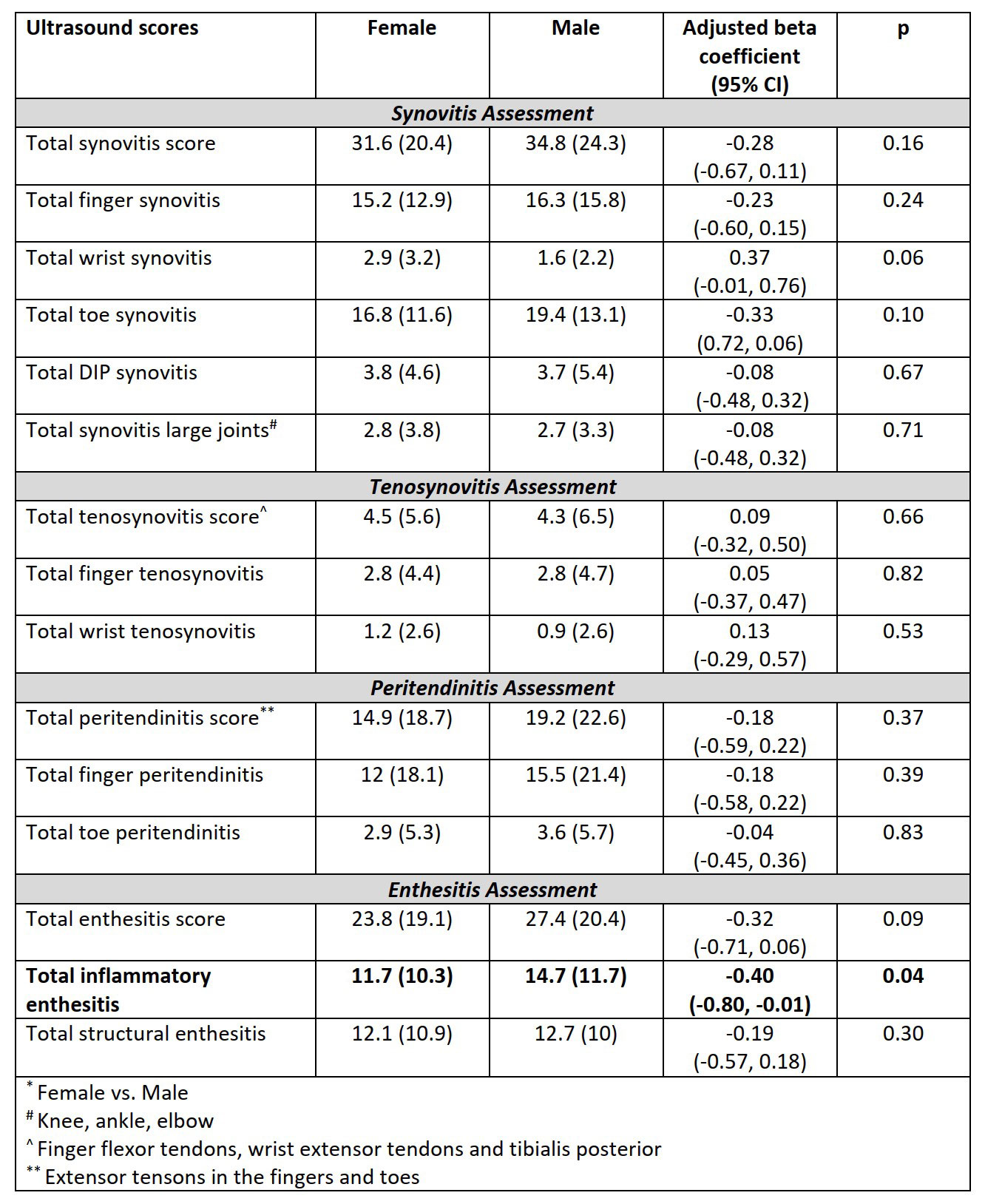Session Information
Session Type: Poster Session C
Session Time: 1:00PM-3:00PM
Background/Purpose: Musculoskeletal ultrasound (MSK-US) provides valuable information on disease phenotype in psoriatic arthritis (PsA). While age and sex are important determinants of health, limited information exists regarding their impact on PsA phenotype. The aim of the study is to explore the effect of age group [younger (< 50 years) and older (50+ years)] and sex on the type, extent, and location of inflammation in PsA as characterized by MSK-US.
Methods: Consecutive patients with active peripheral PsA who were about to start systemic therapy were included. All patients met the CASPAR criteria for PsA. A comprehensive ultrasound assessment of the extent of inflammation in 64 joints, 34 tendons, and 16 entheses was performed. The extent of B-mode and Doppler abnormalities were scored using semi-quantitative scores and summarized as global inflammatory scores in the following domains: enthesitis, peritendinitis, tenosynovitis, and synovitis. Global inflammatory scores by joint area were also assessed. Multivariable regression analyses were used to explore the effect of age group and sex on ultrasonic features, controlling for PsA duration, smoking, and BMI.
Results: 86 PsA patients were included in the study (42 females [48.8%], 54 [62.8%] young). Overall, clinical disease activity measures, medication use, and demographics were comparable between the sex and age groups, except for a lower prevalence of dactylitis and inflammatory axial symptoms in the older group. In contrast, sonographic features differed in several domains between young and older patients. Older patients had higher total synovitis scores and higher synovitis in small joints (fingers, toes, and wrists) but not the large joints. Older patients also had higher inflammatory and structural enthesitis scores (Table 1). Sonographic features of inflammation were by and large similar between male and female patients, except for lower inflammatory enthesitis scores in females (Table 2).
Conclusion: Older age is associated with more severe inflammation in the joints and enthesis in PsA. These abnormalities may represent more intense immune responses in older patients, differences in disease pathogenesis, and possible osteoarthritic changes associated with aging.
Multivariable regression analysis adjusted for sex, PsA duration, smoking, and BMI. Regression models used standardized scores.
Multivariable regression analysis adjusted for age, PsA duration, smoking, and BMI. Regression models used standardized scores.
To cite this abstract in AMA style:
Eder L, Cui K. Characterizing Imaging Phenotypes in PsA: The Effect of Age and Sex [abstract]. Arthritis Rheumatol. 2022; 74 (suppl 9). https://acrabstracts.org/abstract/characterizing-imaging-phenotypes-in-psa-the-effect-of-age-and-sex/. Accessed .« Back to ACR Convergence 2022
ACR Meeting Abstracts - https://acrabstracts.org/abstract/characterizing-imaging-phenotypes-in-psa-the-effect-of-age-and-sex/


